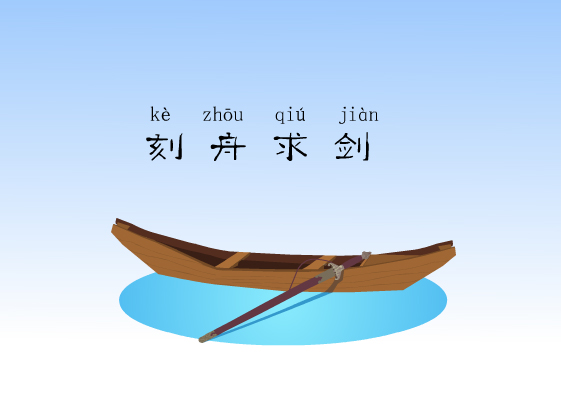
Making his mark -- Acting foolishly
Once, a Chu person (Chu is one of the seven hegemonic states of the period of the Warring States in 11th century BC-223 BC) was crossing the river by boat. Carelessly, he dropped his sword into the water and he immediately made a mark on the boat.
"This is where my sword fell" he said. After the boat stopped, he jumped into the river to look for his sword.
The boat had moved, but the man's sword had not. Isn't this a foolish way to look for a sword? Future generations use this analogy to illustrate people who are inflexible and stubborn.
刻舟求劍(kè zhōu qiú jiàn)
從前,一個(gè)楚國(guó)人在坐船過(guò)河時(shí),不小心把他的劍掉入了水中.他馬上在船上做了個(gè)記號(hào).
"這是我的劍掉下去的地方",他說(shuō).船停下來(lái)后,他就根據(jù)船上的記號(hào)跳入水中尋找他的劍.
船在移動(dòng)但這個(gè)人的劍并沒(méi)有移動(dòng), 用這種方式來(lái)找劍難道不是非常愚蠢的嗎?后人用這個(gè)典故來(lái)形容那些辦事拘泥固執(zhí)、不知變通的人.

Copyright ©1999-2011 Chinanews.com. All rights reserved.
Reproduction in whole or in part without permission is prohibited.